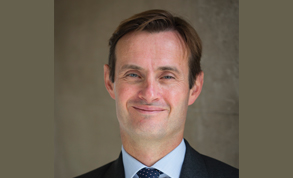Finances broadly on track, but demand pressures showing
 According to the operational performance and finance paper tabled by NHS England and NHS Improvement chief financial officer Julian Kelly at the board meeting on 25 November, organisations are broadly on track to meet their plans half-way through the year. Commissioners showed a small positive variance against plan in the year to date of £184m. Providers had an underspend of just under £135m.
According to the operational performance and finance paper tabled by NHS England and NHS Improvement chief financial officer Julian Kelly at the board meeting on 25 November, organisations are broadly on track to meet their plans half-way through the year. Commissioners showed a small positive variance against plan in the year to date of £184m. Providers had an underspend of just under £135m.
Mr Kelly (pictured) highlighted variances in providers’ planned aggregate income and pay positions at month 6 – with income £802m more than planned and pay spending £627m above plan. These variances were largely driven by pay awards, which were recognised at month 6, he said. They were not known at the start of the year, so were not included in plans.
He added that commissioners’ transformation and reserves budgets (£56m higher than plan) reflected the priority given to restoring elective activity, and the government decision to supplement the ring-fenced elective recovery fund.
Capital spending was £870m less than planned at month 6, Mr Kelly added, though the gap will close according to the year-end forecast, with a projected underspend of £161m.
The operating performance report highlighted the growing NHS waiting lists, with elective activity in September at 82.5% of 2019 activity levels. The government made an additional £1bn revenue and £500m in capital available for the second half of the financial year to support elective recovery and cancer services, while an elective recovery plan is due to be published soon.
Diagnostics had recovered well and was at 98% of pre-pandemic levels in September.
Emergency departments were busier than in October 2019, seeing just under 2.2 million patients.
NHS chief executive Amanda Pritchard said the NHS in England had delivered more than 95 million vaccinations, including 13 m boosters and third doses. Despite the vaccination programme and other preparations such as those above, and the first-ever financial support fund for primary care (the £250m winter access fund), pressures are intense, particularly in urgent and emergency care. More than 6,000 patients are in hospital with Covid, she added.
‘Saying all of that, realistically the likelihood remains of this being one of, if not the toughest winters the NHS has faced.’
It was vital progress was made, not just on the measures in the emergency care plan, but also on the joint work with local authorities to help people stay well at home, to get the care in the community when required, and to be supported to leave hospital as soon as possible when medically ready to be discharged, Ms Pritchard added.
The NHS had put in place new developments, including new treatments for sickle cell disease and spinal muscular atrophy, both of which would have a huge impact on patients. ‘It’s really important not to lose sight of some of the ways in which, despite those pressures, we are able to invest in the transformational changes, which will make a difference for our patients.’
She added that ‘vast majority’ of integrated care systems had a designate chair and designate chief executive.
Related content
We are excited to bring you a fun packed Eastern Branch Conference in 2025 over three days.
This event is for those that will benefit from an overview of costing in the NHS or those new to costing and will cover why we cost and the processes.